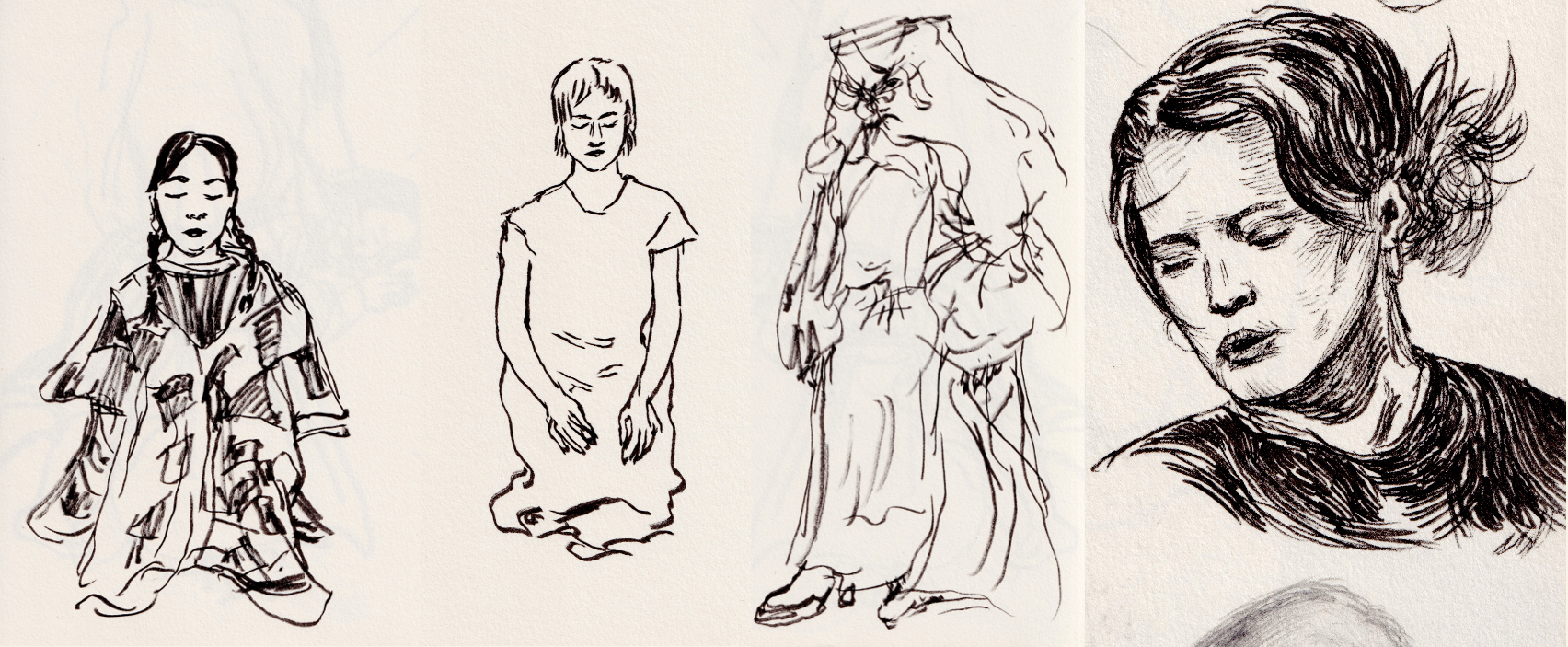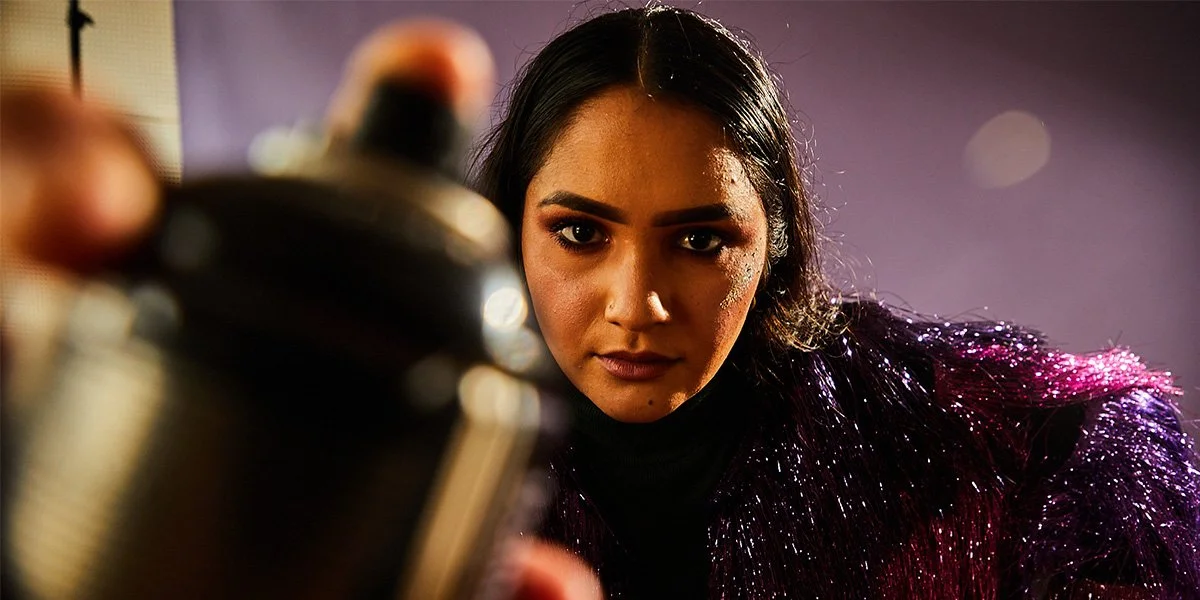REVIEW: “O,D,E” is an evocative, inventive gem of experimental theatre
Experimental opera O,D,E has just closed an impressive debut run (26 August – 6 September) at The Blue Room Theatre, its nights consumed by back-to-back sold-out shows. Word spread like wildfire, and returning audiences crowded in as the season hurtled toward its end. On Wednesday, 3rd September, hopeful patrons who had missed out on tickets lingered outside the box office in hopes of a no-show that would grant them safe passage inside.
There is reason for such fervor humming around the show. Conceived by singer, writer, and composer Sage J. Harlow (AKA Sage Pbbbt), O,D,E breathes new life into the familiar in many ways in a wildly original retelling of the Orpheus and Eurydice myth. It reinvents on many levels: in story, with a queer lens cast upon the classic Greek myth; in form, by stretching the opera genre to new experimental heights. All of this is held together by a secret weapon: the unfurling of live scoring by its multidisciplinary performing musicians.
Produced by Tone List (Josten Myburgh), a champion of the local exploratory music scene, it comes as no surprise that the music does not play second fiddle here. In O,D,E, music and performer stand as equals, carrying the tale together as an entwined ensemble. Described as a text-scored chamber opera, Harlow composes with words, describing each scene and moment with poetry instead of traditional Western notation. This allows a diverse troupe of skilled musicians to bring their own interpretations and disciplines to the story of Orpheus and Eurydice.
Photography by Josh Wells
This piece feels like reading a good book: we are not simply passive observers. The production design cleverly embraces minimalism. A handful of tactile touches, including real candles and subtle lighting tricks, create just enough texture for the music to fill the space and transform it into a fully realised universe. The sound becomes the set design, transporting us to the underworld. Audiences are invited to bring imagination into the story, the setting shaped by the collective dance between flute (Saskia Willinge), saxophone (Naoko Uemoto), percussion (Jane Stark), bass, trumpet (Craig Pedersen), and electronic sound (Eduardo Cossio; Michael Terren). We are asked to fill in the scaffolding ourselves, and the result is so vivid that we forget we are simply gathered in a small room at The Blue Room Theatre, huddled like captivated campers around a fire in the dead of night.
Like most interesting adaptations of old classics, Harlow spins the myth into something fresh. E is given more dimension than the “tragic wife” of the original tale, radiating an effervescent, nymph-like energy. Even Hades is reshaped, represented as a chilling personification of Death “D”, a homage to Mexican saint Santa Muerte. When D enters in a Vader-esque helmet (shout-out to costume designer Tia Tokić), the fear is palpable, heightened by Michael Banting’s towering physicality in a deliciously menacing performance and electronic ingenuity that warps the voice into something inhuman.
Ink sketches of “O, D, E” scenes by Danyon Saxon
By design, words are spoken by characters we cannot understand. As a result, details of the story may drift out of our grasp on occasion, yet it hardly matters in the end. The performances are so charged with emotion and so clear in their intent that we can surrender and be carried with them. The almost improvisational communion between musicians and performers feels ritualistic, each taking turns to possess one another, caught in an unrelenting spell for the entire one-hour runtime.
Even when O sits silently, their stillness carries power. The simple opening of an eye is enough to summon grief and sadness, a testament to the silently sharp performance of Tiffany Ha. The thumping heart of the piece is carried by soprano and vocalist Charis Postmus, who wields it with unbridled passion and skill as E, pouring their emotions out without reserve. As E wails for the loss of their love, we do not need to understand what they are saying - we feel it.
The ending is haunting. After an entire work built on unintelligible language, the arrival of the first clear words lands with devastating weight. The audience is left uncertain of when to clap, as though breaking the silence too soon might undo the spell.
Seeing O,D,E feels like being part of a ritual, closer to an ancient rite than conventional theatre. The lighting, music, costumes, and sheer sweat and commitment of its performers combine into an otherworldy experience. When we left, we knew not what kind of magic had taken place, only that we had been deeply changed by it.








